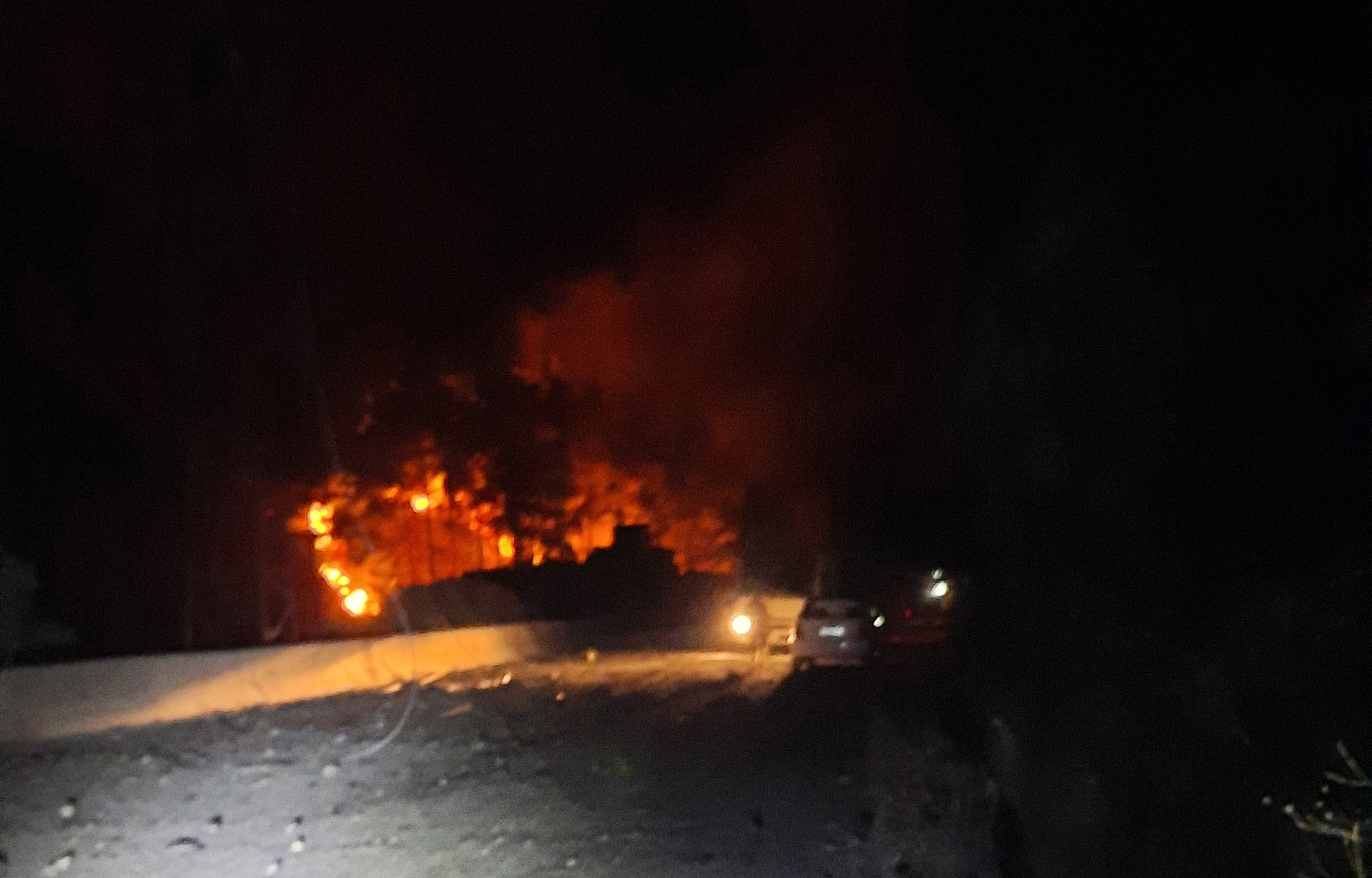Why is Israel carrying out airstrikes against Syria?
Syrian media agencies say more than a dozen people were killed in the latest Israeli strike on the country

Your support helps us to tell the story
From reproductive rights to climate change to Big Tech, The Independent is on the ground when the story is developing. Whether it's investigating the financials of Elon Musk's pro-Trump PAC or producing our latest documentary, 'The A Word', which shines a light on the American women fighting for reproductive rights, we know how important it is to parse out the facts from the messaging.
At such a critical moment in US history, we need reporters on the ground. Your donation allows us to keep sending journalists to speak to both sides of the story.
The Independent is trusted by Americans across the entire political spectrum. And unlike many other quality news outlets, we choose not to lock Americans out of our reporting and analysis with paywalls. We believe quality journalism should be available to everyone, paid for by those who can afford it.
Your support makes all the difference.Israeli airstrikes have reportedly killed 16 people in western Syria, and injured dozens more, in the deadliest attack reported by Damascus in months.
There was no immediate comment from Israel, which typically remains silent on reports of strikes in Syria, but it is the latest in a series of strikes against the country.
Two regional intelligence sources claimed a major military research centre for chemical arms production located near Masyaf, in Hama province near the Mediterranean coast, had been hit several times. They said it was believed to house a team of Iranian military experts involved in weapons production. Syria and Iran have both denied those claims.
Israel has been striking targets in Syria for more than a decade.
Below, The Independent looks at why Israel has been carrying out these strikes - and why they have increased those efforts post 7 October, when Hamas launched its deadly incursion into Israel and reignited the wider conflict in the Middle East.
Disrupting Iran’s weapons supply lines

Iran and Israel are the two most heavily-armed nations in the Middle East and are set in opposition to each other.
Consequently, they have been arming a range of already anti-Israel militias across the region, many of which surround Israel.
The two main Tehran-backed militias used to attack Israel are Hamas from Gaza and Hezbollah, based in southern Lebanon, who have been attacking Israel’s northern regions. The Houthis in Yemen, also backed by Iran, have been attacking ships heading towards Israel’s south.
Syria, as well as Iraq, lie between Iran and Lebanon, meaning that weapons supplies are funnelled through the two countries en route to Hezbollah.
Israel’s air strikes in Syria are directed at disrupting those supply chains; and they have been doing so since well before the latest war in Gaza.
Targeting Iran’s military commanders
After Hamas launched its attack on Israel on 7 October, and Hezbollah began continually firing across the northern Israeli border from the following day, Israel began to more directly strike Iranian personnel in Syria.
In a bid to ensure Israel could not sever supply lines from Tehran to its militias, Iran had begun developing missiles in Syria and posting senior personnel in the country to oversee operations.
Israel’s targeting of these senior personnel is viewed as a reaction to this escalation.
In December 2023, an Israeli airstrike just outside of Damascus killed a senior advisor in Iran’s Islamic Revolutionary Guards Corps (IRGC). It is believed the man in question, known as Sayyed Razi Mousavi, was responsible for coordinating the military alliance between Syria and Iran.
The following month, another alleged Israeli strike in the same region killed five IRGC operatives, including the Iranian intelligence chief for Syria.
Then in April this year, Israeli warplanes targeted the Iranian embassy in Damascus, having previously hit operatives when they were away from the building.
The IRGC said seven of its military advisors died in the strike, including Mohammad Reza Zahedi, a senior commander in its Quds Force, which is an elite foreign espionage and paramilitary arm.
Subscribe to Independent Premium to bookmark this article
Want to bookmark your favourite articles and stories to read or reference later? Start your Independent Premium subscription today.
Join our commenting forum
Join thought-provoking conversations, follow other Independent readers and see their replies
Comments